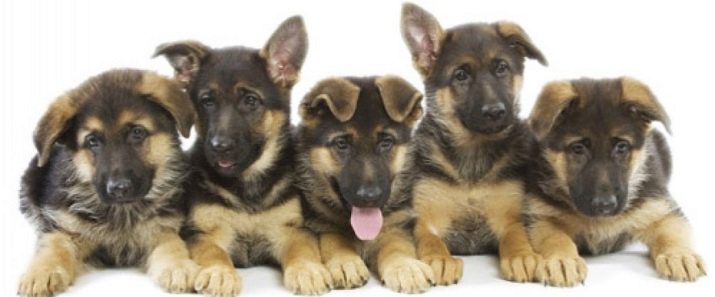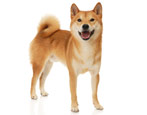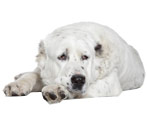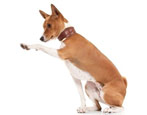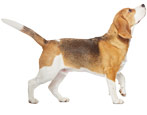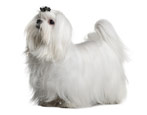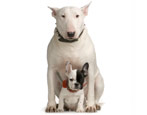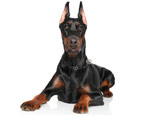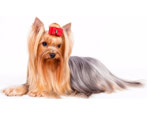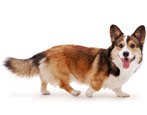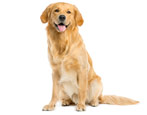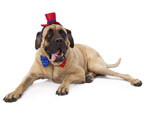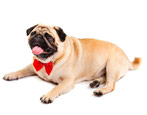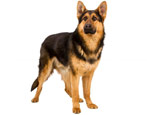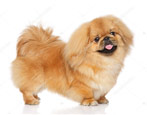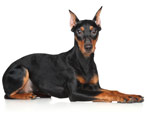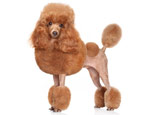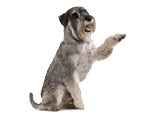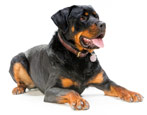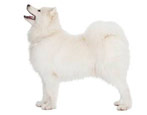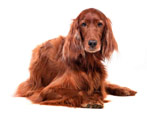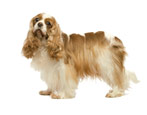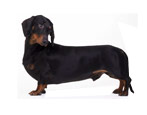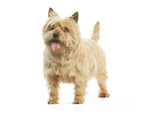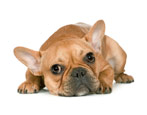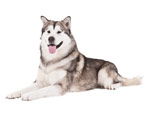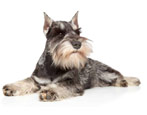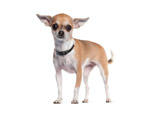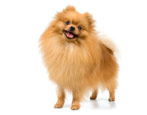How to choose the right German Shepherd puppy?

The German Shepherd is a truly unique breed of dog that organically combines beauty, grace, strength and intelligence. With a competent approach and correct upbringing of puppies of this breed, reliable guards, excellent companions and loyal friends grow up. To protect yourself from mistakes associated with acquiring a defective or sick pet, you should consider a number of important recommendations for choosing a German shepherd puppy. What should you pay attention to? What are the rules for choosing a puppy of this breed?
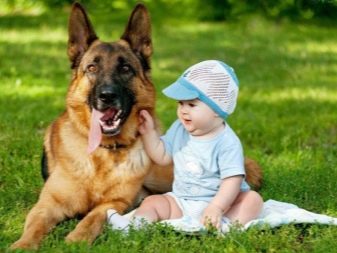
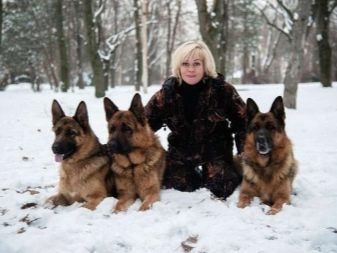
At what age is it better to take a puppy?
One of the very important criteria to consider before buying a pet is its age. Experienced breeders advise against adopting puppies under 4 weeks of age. It is worth noting that this condition applies not only to the acquisition of German shepherd babies, but also puppies of any breed. From about one month old, puppies begin to show independence and a conscious interest in each other and the world around them. By the age of one and a half months, babies undergo a course of vaccination (complex of vaccinations) and a branding procedure.
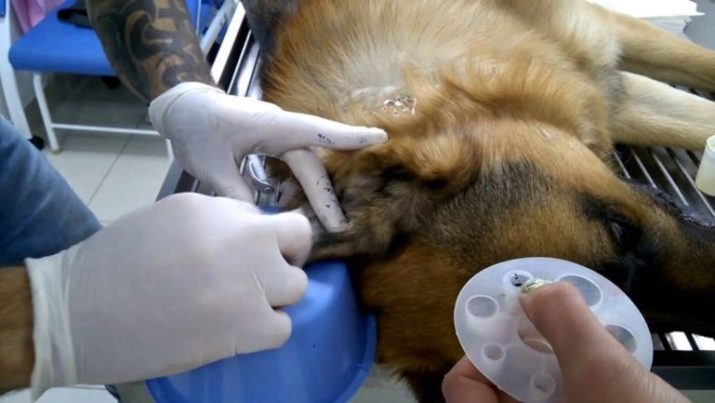
Breeders recommend taking puppies at the age of 2.5-3 months. At this stage of life, babies are already able to adapt to new conditions of detention and unfamiliar environment. At this age, pets have a good look at the exterior inclinations, which make it possible to evaluate the exhibition and breeding potential of the animal.
Puppies at the age of 1-2 months are allowed to be taken only if the potential owner is sure that he will be able to pay enough attention to the pet.At this stage of life, babies need enhanced and reusable nutrition, communication, active development and socialization.


If the owner does not have enough time to raise a puppy and communicate with him, then it is better not to rush to acquire a dog.
People who dream of having a German Shepherd Dog, but have a limited amount of free time, it is better to give preference to puppies at the age of 4-6 months. But even in this case, before purchasing a pet, it is important to correctly calculate your strengths and capabilities. The new owner should have enough free time to educate and train the puppy, which, finding itself in unfamiliar conditions, will at first desperately need the owner's attention and control.

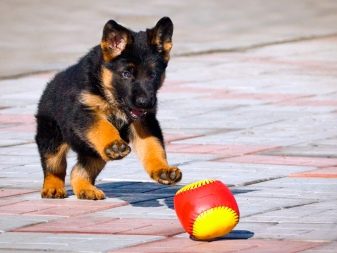
Purpose of Acquisition
In choosing a German Shepherd puppy, the goal of acquiring it plays a significant role. Before making a final decision, the future owner must decide why he needs a pet of this particular breed. So, if a potential owner plans to start a pedigree animal for further participation in exhibitions, attention should be paid to the puppy's pedigree and other documents related to its origin. At this stage, it is also necessary to inquire about the achievements of the baby's parents, their exhibition awards and titles.
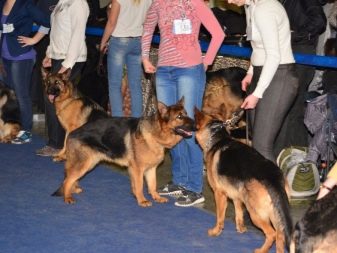
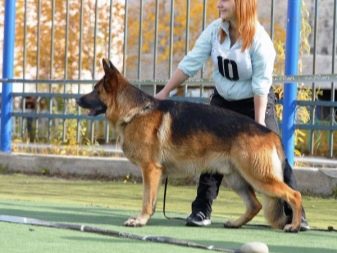
When purchasing a dog to guard the house, you should evaluate the protective qualities of the puppy's parents. It is preferable that both the mother and the father have pronounced guard qualities, a calm and balanced character.
It should be noted that cowardice, indecision and outbursts of uncontrollable aggression are considered defects of this breed.
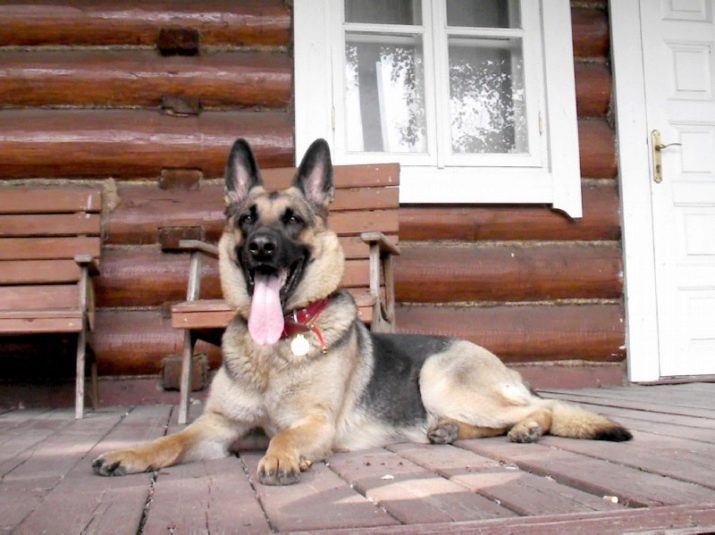
If the dog is supposed to be started not for exhibitions or home protection, but "for the soul", then more attention should be paid to the state of health of the baby, his temperament and behavior. Usually, by 2.5-3 months, the puppies already have time to form certain behavioral features. So, some kids at this age begin to demonstrate physical strength and special activity, others - curiosity and phlegm, others - cockiness and security skills.

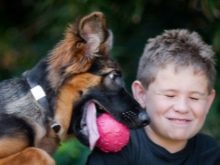

If the German Shepherd is acquired by the future owner "for the soul", then small flaws in its exterior can be considered uncritical. Regardless of the purpose of acquiring a puppy, it must be healthy. The calmness of the owner himself depends on the health of the pet in the future. Only a reliable and conscientious seller can guarantee that the animal does not have hereditary or chronic diseases and has all the necessary vaccinations.
Basic selection rules
Experienced breeders do not recommend buying a puppy, guided only by first impressions and emotions. Even if the seller's reliability is not in doubt, the animal must be carefully examined, its appearance, character and behavior must be evaluated. Visually, the head of a German Shepherd puppy should be in proportion to the body, the neck should be strong and moderately long. In healthy purebred shepherd puppies, the eyes have a dark iris and an almond shape. Light eyes are considered a breed defect.
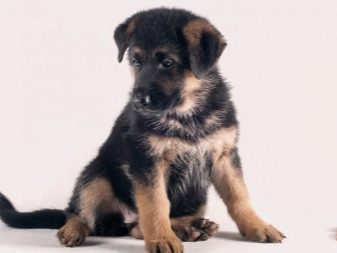

A bluish iris is only acceptable in young puppies under 2 months of age.
There should be no discharge from the eyes, ears and nose. Any mucous or purulent discharge are objective signs of an animal's illness. Also, the puppy should not emit an unpleasant odor, which often indicates the development of infectious diseases and endocrine disorders. The ears of German Shepherd puppies aged 2-4.5 months may visually appear disproportionately large. This is not considered a deviation because at this stage of life in the body of animals there is an intensive production of collagen and, as a result, the active development of cartilaginous plates.
By about 5 months of age, collagen production slows down, and at the same time, the growth of the auricles stops. Practice shows that German Shepherd puppies get ears at the age of 5-6 months.
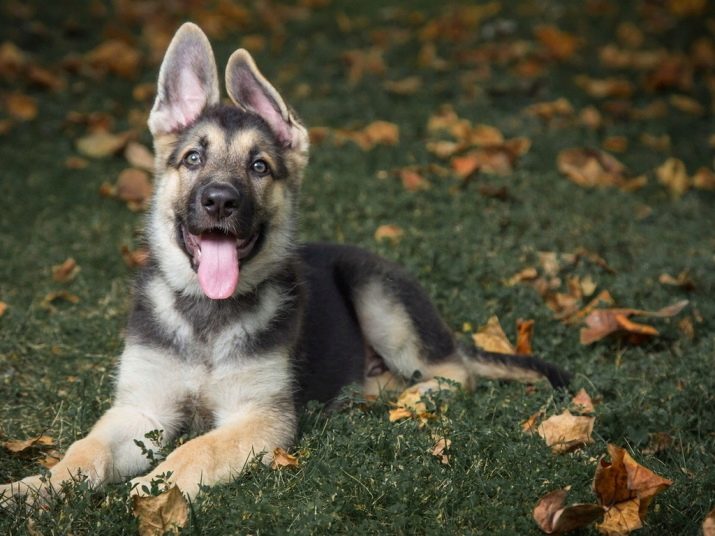
The puppy's teeth should be clean, even and white. The correct bite is scissor bite. Protruding incisors of the lower jaw indicate a violation of the bite (undershot). Only a slight overshot is considered acceptable, in which the distance between the incisors of the lower and upper jaw does not exceed 1-2 millimeters. The lower jaw should be shorter than the upper one.
Healthy German Shepherd babies have a compact, strong body, wide and long hips with symmetrically located joints. Paws of puppies of this breed are large, massive, round, with tightly packed toes. Nails - slightly protruding, dark in color. The paw pads are rough, elastic, black.
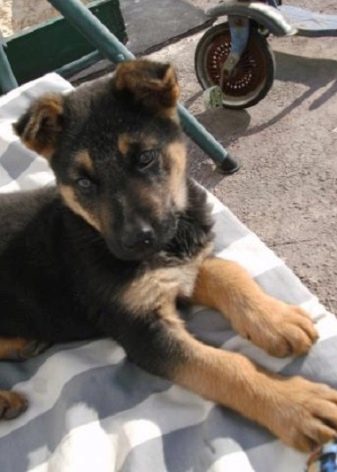
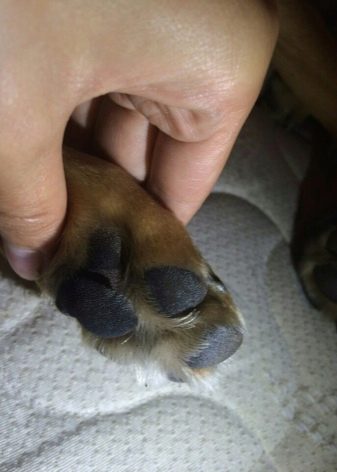
Dewclaws (those that are higher than the rest) from pedigree puppies are removed. Usually this procedure is carried out until the moment when the animal is 6 days old. If during this period the dewclaws were not removed, the procedure is postponed until the puppy is 12-16 weeks old. The tail of purebred puppies should be slightly saber-shaped. In healthy animals, the tail should be straight, free of visual curvature and kinks. On palpation of the caudal vertebrae, no lumps or bumps should be felt.
In a relaxed state in this breed, the tail hangs gently along the hind legs. In an excited state, the tail may be slightly raised (but not higher than the horizontal of the body). When examining an animal, it is necessary to pay attention to the condition of its coat and skin. The coat should be thick, clean, soft and close to the skin. Bald spots in the coat are not allowed. The skin should be clean, pale pink or pink, with no visual changes (rashes, pimples, strange formations).
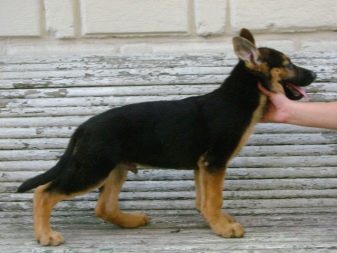

Before buying, you should not only inspect, but also touch the puppy. Particular attention should be paid to the condition of the abdomen, which should be tight, but not bloated. A distended belly in combination with dull hair and depressed behavior of the animal indicates that it suffers from helminths. The behavior of the animal is also of great importance. Puppies of this breed are most often mobile, cheerful, playful and inquisitive. Uncertainty and shyness are unusual for German shepherds.
If the kid is active, willingly plays with peers and is interested in the world around him, most likely, a brave, loyal and intelligent dog will grow out of him.
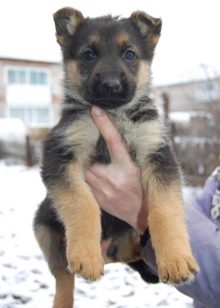
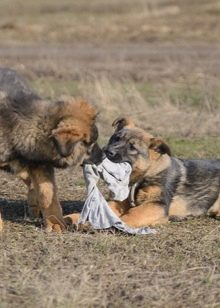

According to some dog breeders, The strongest in a litter are usually the puppies that are born first. However, in practice, this observation is not always confirmed. To choose a pet that is most suitable for a potential owner in terms of temperament and character, it is worth observing each puppy from the litter. If a young animal behaves aggressively, offends weaker fellows, growls or tries to bite - all this may indicate an unstable psyche.
Experienced breeders do not recommend purchasing such puppies to those people in whose families small children are growing up.
When choosing a German shepherd puppy, you should be guided by the generally accepted standards of this breed. So, the presence of such defects in animals as:
- white color;
- weakness of the ears or drooping;
- excessively long guard hair;
- deformation of the auricles and tail;
- cryptorchidism (non-submission of the testes into the scrotum in males).
For information on how to choose a German Shepherd puppy, see the following video.
Where is the best way to get it?
When choosing a place to purchase a German shepherd puppy, it is advisable to be guided by the purpose of buying a pet. If the animal is purchased for further participation in exhibitions and competitions or for the purpose of subsequent breeding, then the purchase of the animal is most reliable in a specialized nursery. Moreover, professional German Shepherd breeders recommend choosing such kennels that specialize in breeding and selling dogs of this particular breed, and not several breeds at once.
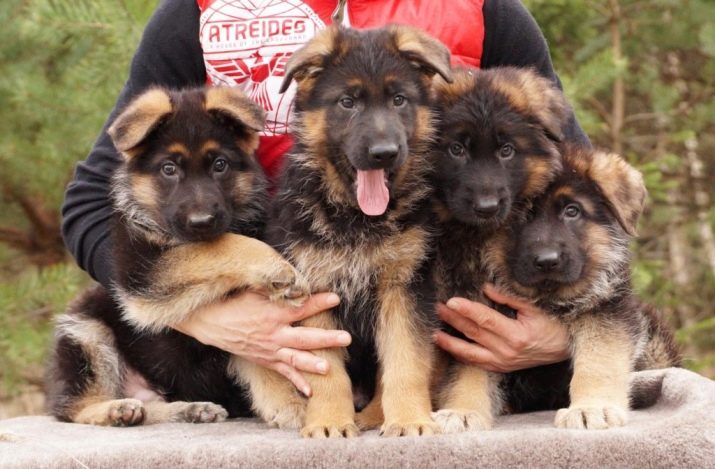
When choosing a puppy from private sellers, you should inquire about the hereditary potential of the animal.A conscientious seller will obligatorily provide the buyer with detailed information about the puppy's parents, their achievements, protective qualities and other characteristics. It is undesirable to pick up a German shepherd puppy in questionable places - in markets and bazaars, from breeders with a suspicious reputation or from sellers selling puppies by ad.
If a specific person was chosen by the seller, then it is better to give preference to someone who enjoys authority among professional shepherd breeders.
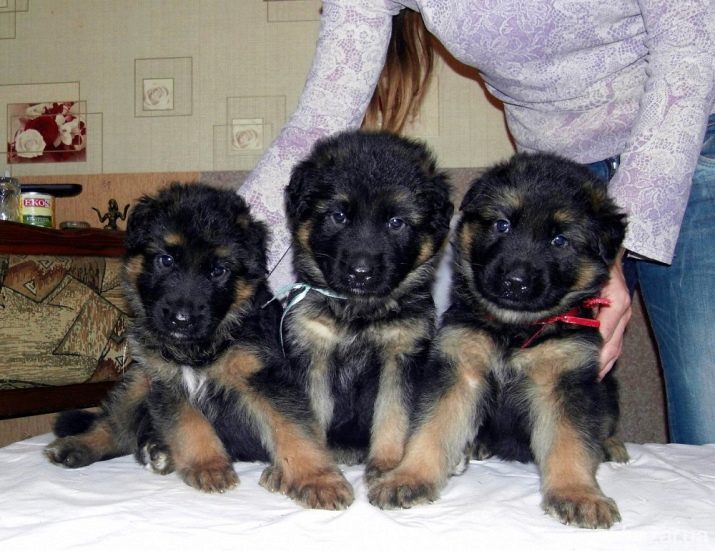
Whom to choose: a boy or a girl?
When choosing a pet of a certain gender for yourself, it is better to rely on your own expectations and preferences. So, female German shepherds are considered more organized, affectionate, docile and loyal. They are easier to train, and therefore it is recommended to start them for novice dog breeders.
However, when purchasing a girl puppy, a potential owner should take into account that in the future, he will have to face such a delicate feature of the animal as periods of flow. At this time, the dog requires special attention and control from the owner. Some bitches become naughty, overly playful, restless during estrus.
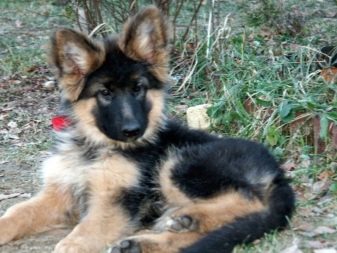
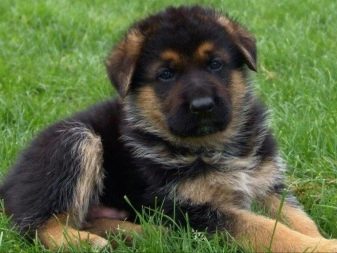
German shepherd males are more aggressive, assertive, stubborn and distrustful. Many males of this breed tend to dominate, and therefore their training requires a professional approach and specific knowledge.
When purchasing a male puppy, a potential owner should take into account that male sex drive persists throughout life. Smelling a bitch in heat, a male shepherd can break off the leash, make a tunnel in an aviary or booth, and then escape. Taking into account these features of males, dog owners should initially pay maximum attention to raising animals, seeking from them unquestioning obedience and obedience.
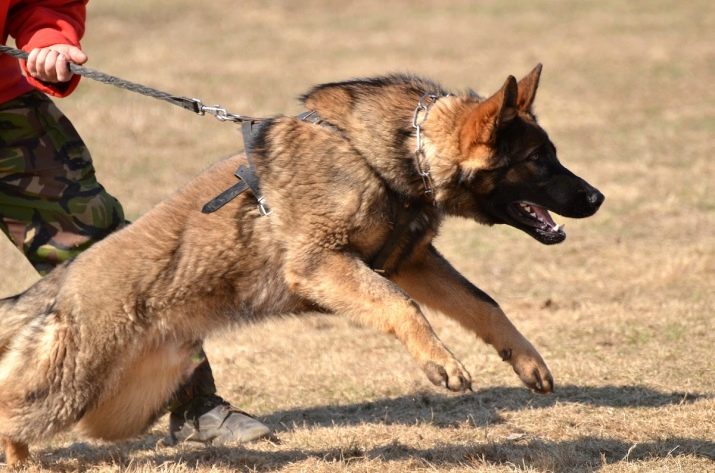
Professional advice
Experienced dog handlers recommend paying attention to his gait when buying a German shepherd puppy. It should be flat and smooth. Lameness or falling to the sides of the puppy when walking is not allowed. It is also necessary to assess the condition of the animal's back. It should be flat, without questionable hump-shaped formations or sagging.
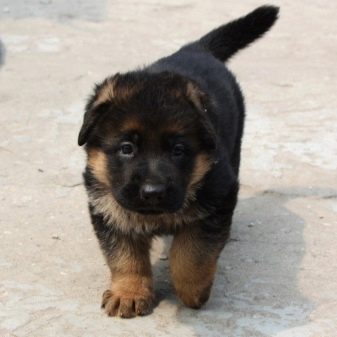
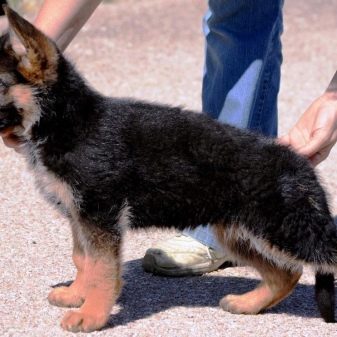
To assess the character of each puppy in the litter, you can do a little test involving tossing a tennis (or any small) ball at them. Those puppies who show fear when throwing the ball, according to the dog handlers, are unlikely to be able to please the owner in the future with guarding or fighting qualities.
Another way to assess the protective potential of German Shepherd babies involves a completely simple action - clapping your hands. As the practice of experienced breeders shows, such a test allows you to quickly weed out weak, defective and cowardly puppies.
